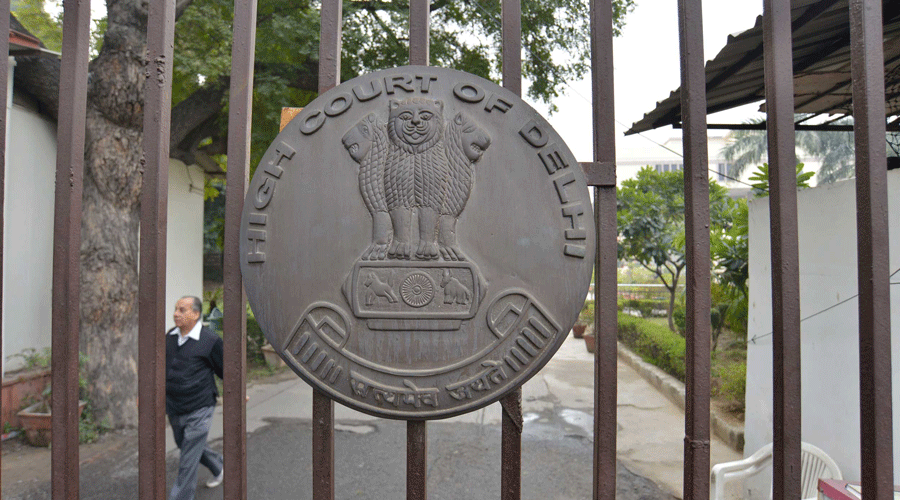Noting the "direct and pernicious impact" of smokeless tobacco on public health, the Delhi High Court Monday affirmed a ban imposed by the food safety commissioner on manufacture, storage and sale of gutka, pan masala, flavoured tobacco and similar products in the city.
A bench headed by Chief Justice Satish Chandra Sharma set aside a September 2022 decision of a single judge of the high court quashing the ban and allowed the appeals filed by the Centre and Delhi government against it.
The court opined that there "existed no justification" for the quashing of the notifications and dismissed the objections raised by entities in tobacco business against the prohibitory notifications issued from 2015 till 2021.
"We find ourselves unable to sustain the impugned judgment rendered by the learned Judge. These appeals shall consequently stand allowed. We find no merit in the challenge raised in W.P.(C) No. 3362/2015 (against the ban). It shall, in consequence, stand dismissed," said the bench, also comprising Justice Yashwant Varma.
"It becomes necessary to observe that the writ petitioners (manufacturers of tobacco related products, etc) did not dispute that both cigarettes as well as smokeless tobacco have a direct and pernicious impact on public health...once it was found and conceded that both categories of tobacco constituted substances which had a direct impact on public health, the impugned notifications clearly did not warrant being quashed," observed the court.
The court, in its 176-page judgement, also observed that the Supreme Court has already called upon governments to ban manufacturing and sale of gutka and pan masala and the single judge could not have held the same to be not applicable to the present instance.
Rejecting the objection of the tobacco businesses that the ban was discriminatory as it only aimed at "smokeless tobacco" and not cigarettes, the court stated that the measures were adopted bearing in mind the "larger number of users of smokeless tobacco" and the food safety authorities were also "statutorily armed" to impose such a prohibition".
"Article 14 cannot possibly be invoked on the ground that since a particular genre of tobacco has not been banned, there should be no prohibition in respect of an equally harmful article," said the court as it noted that while 163.7 million people in the country were users of only smokeless tobacco, the number of persons smoking was pegged at 68.9 million.
"The power to prohibit stands specifically conferred upon the food safety authorities by virtue of Section 30(2)(a) of the FSSA (Food Safety and Standards Act). The learned Judge thus clearly appears to have overlooked the fact that the principal enactment itself had conferred a power to prohibit. Regulation 2.3.4 (of Prohibition Regulations) proscribes the use of tobacco and nicotine as ingredients in any food product. That prohibition is clearly neither provisional nor impermanent," it stated.
The court said as long as the interest of public health requires, the authorities would "clearly be justified in continuing" its prohibitory orders till the situation is remedied or it is established that there is no harm to public health.
"The peremptory direction issued by the Supreme Court was an ambiguous command to all State Governments and Union Territories to enforce the prohibition in respect thereof and to ensure compliance with the diktat of Regulation 2.3.4 (of Prohibition Regulations). There was thus no justification for the learned Judge holding that they would not apply," it said.
The court also noted that the notifications in questions were not an attempt to regulate tobacco or nicotine but to regulate food containing those substances and the power of judicial review did not extend to interfering with a policy decision unless it be shown to be wholly erroneous, capricious or manifestly arbitrary .
The court further said that neither pan masala, nor chewing tobacco or gutka stood excluded from the definition of "food" under Section 3(1)(j) of the FSSA.
"A careful reading of the Impugned Notifications would establish that what was proposed to be banned was not raw or pure tobacco. The subject matter of the prohibitory order was tobacco when mixed with other ingredients and additives. Those articles were specified to be gutka, pan masala, flavoured/scented tobacco and other like products. It would thus be wholly incorrect to assume that the notifications sought to ban tobacco per se," it stated.
The court observed that before the single judge, the petitioners clearly appear to have proceeded on the mistaken assumption that the notifications sought to ban or prohibit tobacco when what was enforced was prohibition of the addition of tobacco or tobacco products to a food product.
On September 27, 2022, the single judge had quashed the ban, saying they were issued in a mechanical manner and the authorities exceeded the powers vested in them.
The petitioners had contended before him that the notifications were arbitrary and ultra vires the FSSA and violated their fundamental rights.
The single judge had said the Commissioner of Food Safety can issue prohibition orders only in emergent circumstances after giving an opportunity of being heard to the concerned food operator and ban was clearly violative of Article 14 of the Constitution as it sought to create a classification between smokeless and smoking tobacco.
Except for the headline, this story has not been edited by The Telegraph Online staff and has been published from a syndicated feed.










